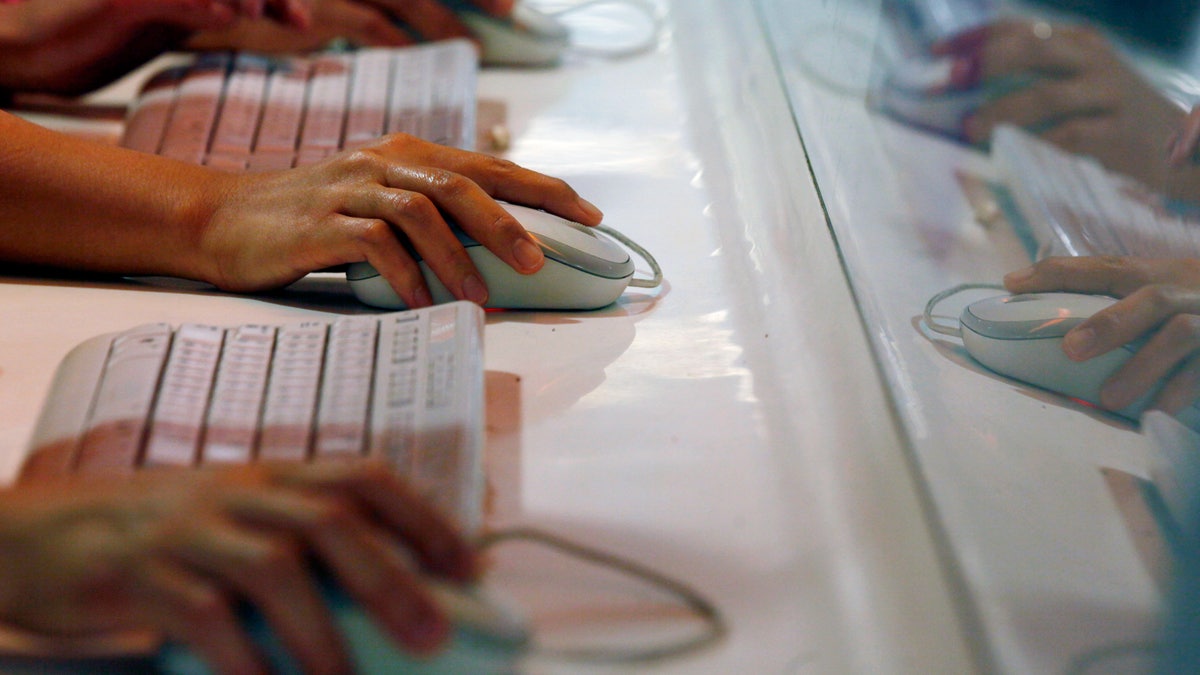
FILE - In this June 16, 2013 file photo, Internet users browse their Facebook website by the free wifi internet service in an underground station in Hong Kong. Its never too early to start planning for your digital afterlife, the fate of your numerous online accounts once you shed this mortal coil. (AP Photo/Kin Cheung, File)
Women make up nearly 51 percent of the total U.S. population. The Latina share of the U.S. female population stands at 16.4 percent and is expected to grow to 25.7 percent by 2050. Despite these numbers, women and Latinas are woefully underrepresented in the Science, Technology, Engineering, and Mathematics (STEM) fields – one of the fastest growing sectors in the United States today.
Today, women make up only 26 percent of the U.S. STEM workforce, while men make up 74 percent. Latinas represent a much smaller percentage of this workforce at 7 percent. Fortunately, there are opportunities to close these gaps. Foremost among these are the many new – and well-paying – jobs being created in the communications and information technology sectors. Latinas are well positioned to help fill these jobs as college graduation rates for Latinas have increased faster than any other group of women.
The FCC must continue to enforce Internet protections for all broadband customers, ensuring that appropriate checks and balances are in place to safeguard the public interest, as well as the overall well-being of the U.S. broadband ecosystem.
But the best way to change this dynamic for good is through education and preparing Latinas early on for careers in STEM. This requires incorporating digital learning into educational curriculums and ensuring that Latinas are able to harness the power of Internet technology and education. To achieve this goal, universal broadband access is key.
Broadband is not only changing how schools educate our students, it’s also creating a wealth of other new opportunities for Latinas. From improving business opportunities for Latina entrepreneurs of all trades and backgrounds to helping Latinas better manage their health care needs and that of their families – broadband is empowering Latinas in innumerable ways.
For these reasons and many more, it is essential that we as a community pay attention to what’s going on at the Federal Communications Commission (FCC). The FCC is working to ensure that the Internet remains fair, open, and accessible to all Americans, as has been proven during recent FCC Open Internet Roundtable discussions taking place in Washington, D.C.
Now is the time to make our voices heard and highlight how the policies that have shaped the current dynamic Internet ecosystem have worked in our community’s favor.
Well over 90 percent of the country has access to broadband. However, there is still work to be done, especially when it comes to getting more people to adopt it. When it comes to home broadband access, Latinos lag behind Whites and Blacks: only 45 percent of Latinos have a home broadband connection, compared with 65 percent of whites and 52 percent of blacks.
As a community, our goal should be to ensure that all Americans are benefiting from what broadband has to offer. As we work to ensure that more Latinas, in particular, are connecting to broadband services – be it at home, in public libraries, or in the classroom – we need to ensure that we are preparing and encouraging Latinas to consider STEM paths.
We must ensure that America’s high-tech industry is working to educate Latinas, providing a pathway for getting more women to pursue STEM careers, and positioning all women to contribute to the continued growth of this vital sector.
To do so, we must work to make sure the FCC continues forward with its approach to preserving an Open Internet for all. The FCC must continue to enforce Internet protections for all broadband customers, ensuring that appropriate checks and balances are in place to safeguard the public interest, as well as the overall well-being of the U.S. broadband ecosystem. For these reasons, the FCC should assert its authority under Section 706 of the Telecommunications Act to implement new rules meant for these purposes. Doing so will help to ensure that women and Latinas are getting a fair shot at digital inclusiveness and are provided with the digital tools to excel in today’s digital economy.
